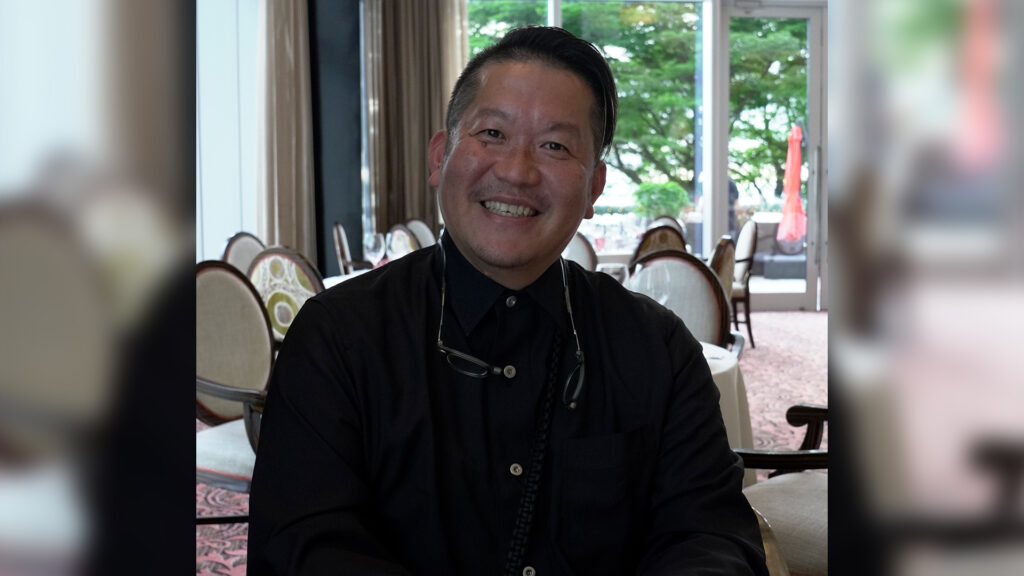It was a field day of sorts for Manila’s haute society of gastronomes, serial eaters-out and critics who scored a reservation last weekend at Solaire to be served, tableside, by serious high-dose chefs from white-tablecloth, Michelin-star restaurants in Asia and Europe.
Making a rare appearance at Yakumi was master chef Takeshi Fukuyama, owner of the star-flecked [La Maison de la Nature] Goh, a regular at Asia’s Best 50 oft credited to have won Fukuoka an elusive place in the coveted red guide, other esteemed ratings and word-of-mouth recommendations.
Fall-apart-tender tuna, Kyushu vegetables and Wagyu beef paired with either champagne or sake comprised an eight-course ensemble that paid homage to the flavors of Fukuoka and France, and the top chef’s pathological obsession for grace and precision.
Solaire has been sensational for a brand of hospitality it has been celebrated far and wide for 11 years, one inclined to leave culinary artists like Fukuyama on their own devices: “Do what you do best,” “Surprise them,” a direction that sits well with the chef’s orientation toward recommendations.
Fukuyama, top-billed as a master of omotenashi (hospitality), would record his guests’ preferences — “Too spicy!,” “Too cold!,” a strand or a stick this way or that — which makes every perfect sense as they often come back to Goh, an omakase that serves French.
The place is outfitted with a communal table that sits 10, spaced to encourage acquaintances over amuse-bouche and abalone with seaweed powder, a show kitchen front and flashy with masterful choreography and sleight of hand. And Fukuyama occasionally leans over to get to know them.
Fukuyama’s collaborations across Asia brought about another fine-dining enterprise, GohGan, a partnership with Asia’s No. 5: the illustrious chef Indian Anand Gaghan from Thailand.
The 54-seat restaurant faces an open kitchen just the same, and a supper club for a kiss shy more than a dozen at the terrace to make sense of the picture-perfect view of a slow-flowing river. It conjures an al fresco dinner by the Seine.
At GohGan, there were nary Parisian sailors in red beret or a marquee on the wall saying “Oui chef!” But, here, Indian and French techniques are another haute cuisine instead of a fusion, a motherlode of complementary spices and natural herbs. Best-sellers: signature coconut crab curry with tossed noodles in scallion oil, if not the restaurant’s iteration of the curry and gohan (rice), regarded the way you might when an exceptional cook can claim an exclusive title to a particular dish.
The live kitchen adds emphasis to the event at GohGan, which is of equal essence to Fukuyama’s concept of hospitality and surprise peppered like minced oath as you would garlic.
You may intrigue Fukuyama by the perennial question: “Is it the chef or a good spice?”
And then some about food versus service.
“A good chef is someone who knows how to make the customers happy. I noticed that the ones that really get applauded are the ones that deliver good food. As far as I’m concerned, I put premium in hospitality and surprise as a value you add to food.”
Purists can be snooty with twinges of doubt: “Can a Japanese cooking French succeed as authentic?”
Would you go to a Japanese restaurant, out-and-out, for pommes dauphine?
This, notwithstanding the Japanese’s place in the history of France, where, after World War 2, some Japanese were sent to work in French kitchens.
“French food has a simple structure. I arrange it in a way that is friendly and relatable to the Japanese. I tweak it in terms of flavor and presentation, but it is loyal to its roots.”
Fukuyama combines the Japanese art of refining high-quality ingredients through simplicity and the intricate French process to amplify flavor: e.g. grilling vegetables. Or Frenching a bone.
“Authenticity depends on the chef or the customer. But as a Japanese chef working with French chefs and Japanese chefs working in France, I’m exposed to relevant opinions. In terms of compliance to ingredients, some Japanese say French should be French, Japanese should be Japanese; but food is borderless, doesn’t mean a dish has to lose its sense of origin.”
You can break a lot of rules when you have the talent. But are stars really all that? Apparently, the greater the chef, the greater the doubt. And, at Solaire, time was Fukuyama was dampened by discreet misgivings about what he constantly does best: A staring crowd of 500 against his intimate guests of 10 in Fukuoka.
Either they’re transported to rapture or sent sick down the lavatory — that is from a titleholder who, after Solaire, would make a beeline to Seoul to be recognized again by Asia’s Best 50.
But confidence is one thing; it’s when you lose an iota of self-doubt that you cease learning.
Fukuyama waking up to every sun as a peer to people he’s cooking with, whether an amateur or a cook in whose home he is invited to dinner.
“Learning is something that doesn’t stop. I travel and, along the way, taste new dishes. I see other creations and I would say, ‘I want to make that, too!’”
